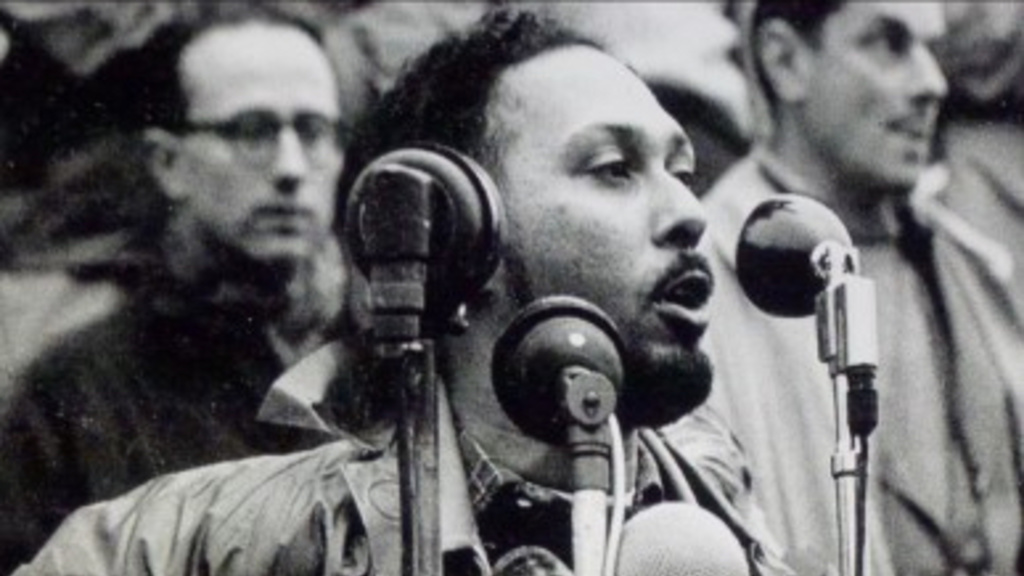
Addressing the Crisis: The Stuart Hall Project
This working group will engage in discussions about race and ethnicity as it intersects with gender, sexualities, ability, and class in national and transnational contexts. Our goal is to cultivate an alliance among scholars who yearn to engage in a conversation beyond a particular discipline and racial-ethnic group, and to think through points of continuity between historically marginalized groups and aggrieved communities. We see this group as a space to focus on contemporary social movements of Indigenous Nations Peoples and Latino/as, African and Asian diasporas, borderlands, cultural production in the U.S., Europe, Asia, Mexico, Africa, and Latin America, and critical whiteness studies, with a particular focus on Hall, his predecessors, and those influenced by Hall’s contribution to sociology, film studies, popular culture, and cultural studies.
To learn more about this group, please contact its director, Deborah Whaley (deborah-whaley@uiowa.edu).
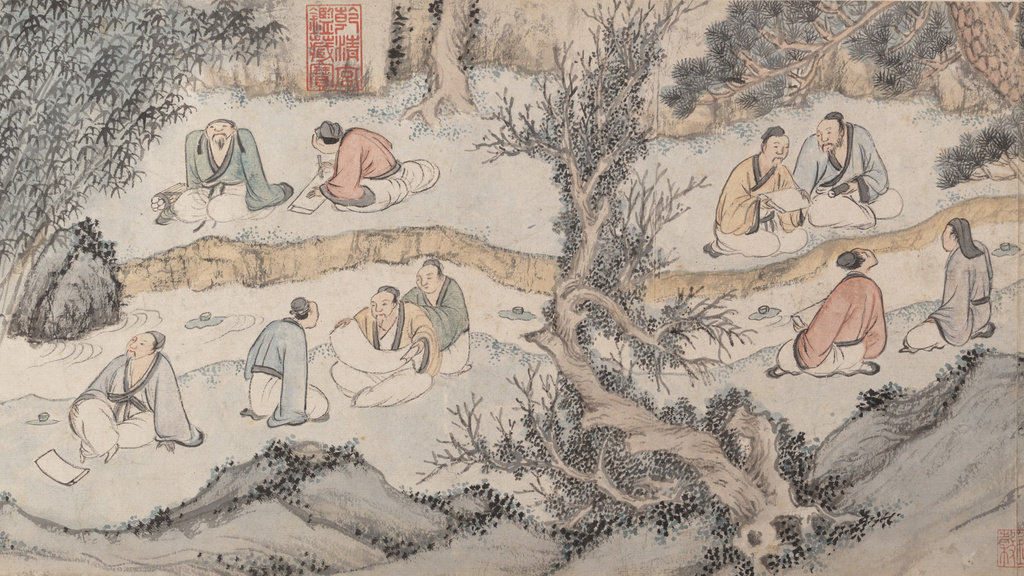
Chinese Humanities & Arts
This working group brings together scholars from a variety of disciplines, including history, art history, literature, religious studies, and translation. We envision our group as a sort of arts and humanities lab with a focus on premodern China, covering nearly three thousand years (from 10th c. BCE through 19th c. BCE). Members will share in-progress research with each other, provide critical feedback, and read related scholarship together. Our purpose for the coming year is exploratory: we hope to learn what intersections and synergies exist across our research interests and projects. We anticipate that some of these areas will become the starting point for joint research collaborations or hosting public events, and hope that eventually our core group can come to serve as a regional hub for premodern Chinese studies.
To learn more about this working group, please contact its co-directors, Newell Ann Van Auken (newellann-vanauken@uiowa.edu) and Amy Huang (amy-huang-2@uiowa.edu).
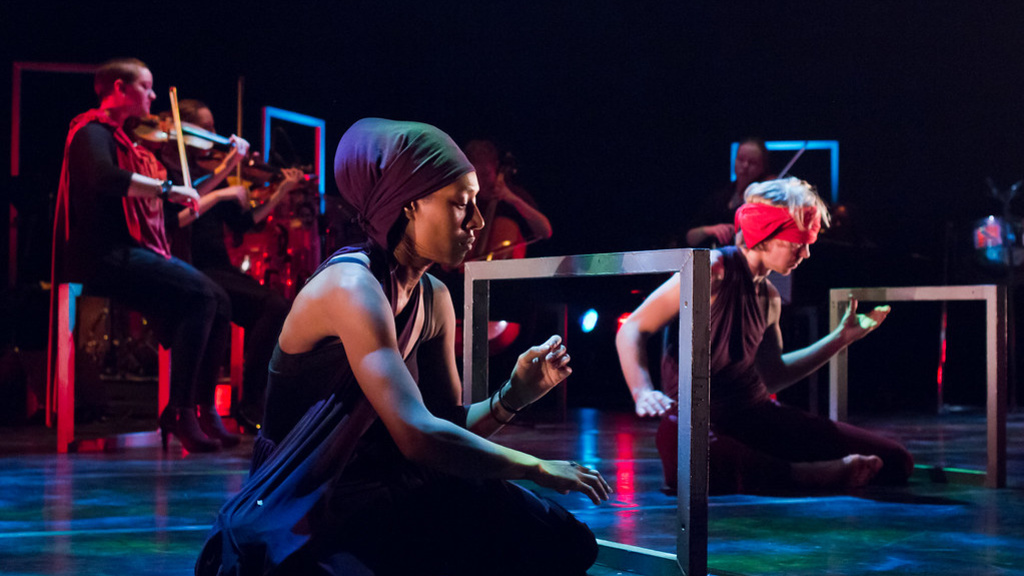
Decolonizing Acting in the Classroom
Members of this working group will educate themselves on anti-racist and anti-patriarchal approaches to teaching theatre performance so that we can evolve as educators and change the way we work in our classrooms. Our field as a whole has been dominated by Eurocentric approaches to text that were developed mostly by white cis males, and we all seek the opportunity to explore alternative ways of working and teaching so that we can start and continue the work of decolonization. The members of the acting faculty would like to engage together in this work, and we invite other members of our community including students to join us.
To learn more about this working group, please contact its director, Kristy Hartsgrove Mooers (kristen-hartsgrove-mooers@uiowa.edu).

Legal Theory Reading Group
This group will provide an informal forum for graduate students and professors in law and philosophy to discuss current issues in legal theory. Members will read and discuss recently published and forthcoming articles on a topic that engages both disciplines.
To learn more about this working group, please contact its director, Mihailis Diamantis (mihailis-diamantis@uiowa.edu).
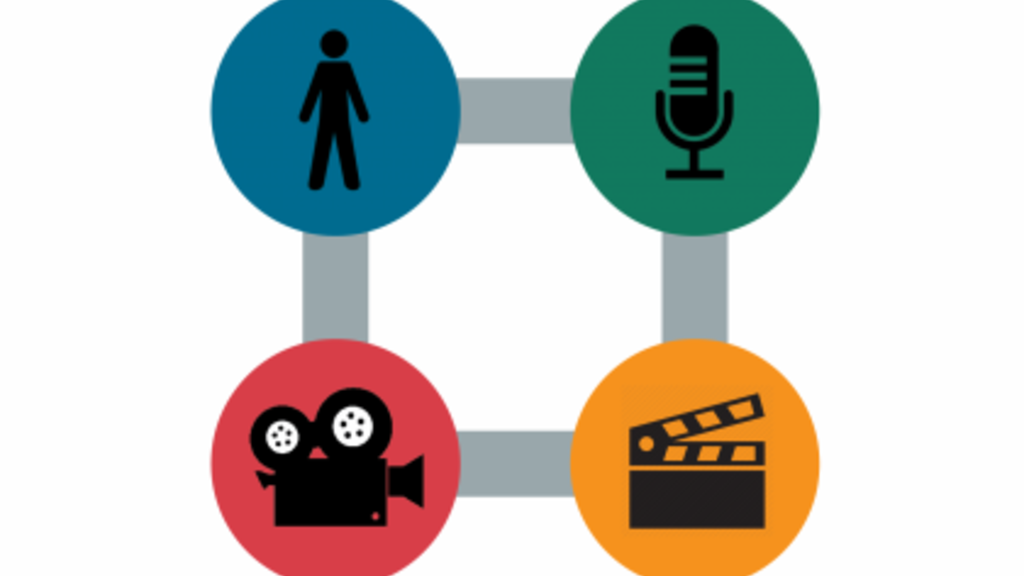
The Practice & Ethics of Digital Storytelling
The goal of this working group is to convene an interdisciplinary community of practice for faculty, students, staff, and community organizations interested in collaborative, ethical digital storytelling. Potential activities include conversations with scholars and community leaders engaged in digital storytelling, readings on how digital storytelling has been practiced across disciplines, feedback and support for members’ own storytelling work, or a collaborative digital storytelling project.
Digital storytelling and other narrative research methods also raise important ethical questions. Sharing stories widely may threaten personal privacy, but not sharing stories could silence storytellers. While ownership over one’s own story is fundamental to the process, facilitators and community partners may seek to shape stories to advance set research or advocacy agendas. In addition, power and privilege inequities between researchers and storytellers structure all elements of the storytelling process. Carefully considering these ethical issues will be at the center of our work together.
To learn more about this working group, please contact its director, Rachel Young (rachel-young@uiowa.edu).
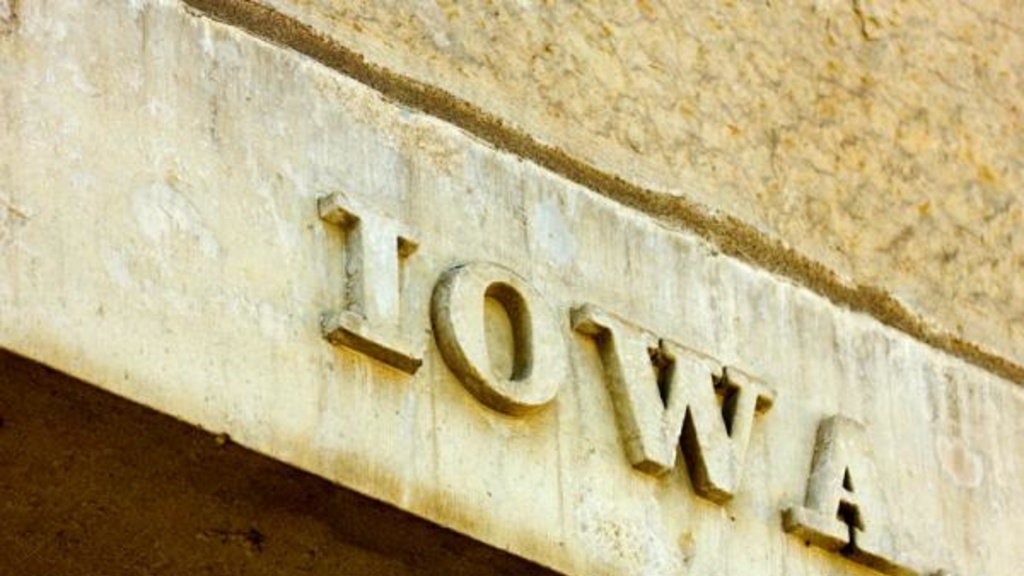
Scholarship of Public Engagement
Now in its tenth year, this working group will focus on reading about the existing research where the voices of community partners are at the center of publicly engaged scholarship. This working groups intends to co-author more collaborative pieces that bring in the voices of community partners, an aspect that is largely missing from the scholarly work on publicly engaged scholarship.
As publicly engaged scholars, the members of this working group believe that at the center of engaged scholarship are campus-community partnerships reflecting careful partnerships and ethical principles of engagement. The group is aware that power, position, and resources may disrupt well-intended activities of public engagement. As such, the group remains sensitive to the power and position members occupy as representatives of the University. As its members are researchers/scholars, the group's scholarship often focuses on those who are less powerful and represent groups who are different with regard to race/ethnicity, language, literacy, and class, and face dramatic health disparities and experience gaps in education. Creating sensitive campus-community partnerships requires constant monitoring of ethics so that communities/local residents do not become laboratories for University research.
Second, from an academic perspective, the members are mindful that engaged scholarship requires time and energy investments and still may not be valued in the academy. Since Year 1, the group's discussions have focused on how members might move the academy so that colleagues and administrators understand the value in publicly engaged efforts of teaching and scholarship. The group will continue discussions focused on creating and maintaining sensitive partnerships with community members while also exploring new visions of engaged scholarship in rural southeastern Iowa. Finally, this working group intends to continue to explore how members can mentor colleagues and graduate students interested in similar work.
To learn more about this group, please contact its director, Carolyn Colvin (carolyn-colvin@uiowa.edu).
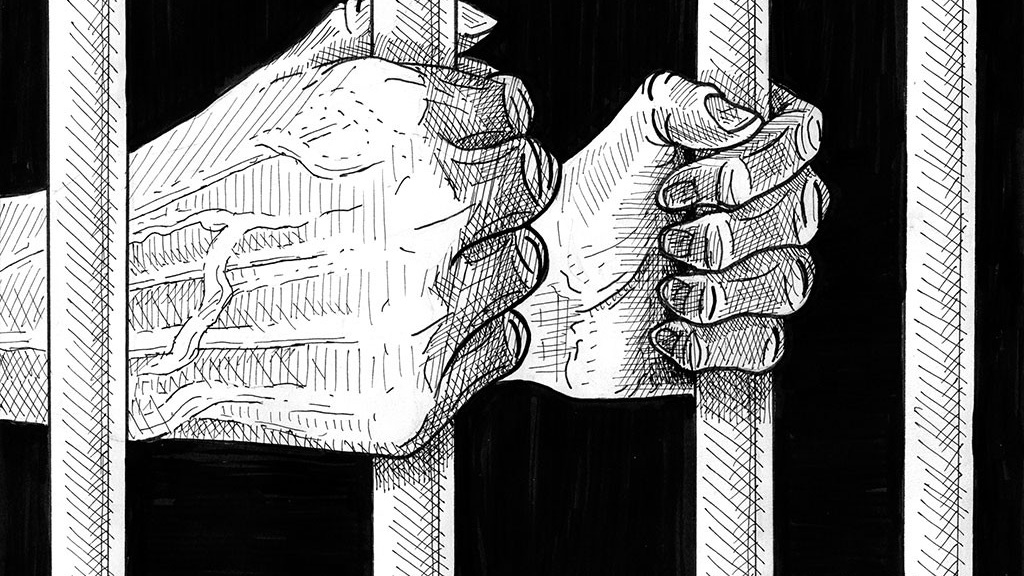
Transform(ED) Justice Collaboratory
The Transform(ED) Justice Collaboratory envisions a future where the abolition of the carceral system is a reality and the dignity of all humanity is acknowledged, valued, and protected, regardless of race, gender, sexual orientation, physical and mental abilities, or socio-economic status. The group works toward abolition using education—inside and outside—as our primary tool. We work to transform justice policy and the legal system to center rehabilitation, resilience, and restoration of relationships. At the same time, we support students in higher education who are system-involved, amplify their voices in policy conversations, and work to create a university culture that recognizes system-involved students, staff, and faculty as important contributors to diversity and our community. The Transform(ED) Justice Collaboratory engages academics, practitioners, and community members from across disciplines, across the state, and throughout the country and uses data, research, narrative, and art to effect community-driven change.
To learn more about this working group, please contact its co-directors, Heather Erwin (heather-erwin@uiowa.edu) and Daria Fisher Page (daria-fisherpage@uiowa.edu).

Algorithms & Social Media
This group brings together scholars from the humanities, social sciences, and STEM sciences to explore the functioning and implications of large data generated by social networking applications. The goal is for humanists and social scientists to get a better idea of how algorithms in social media actually function, while introducing scientists to some of the emerging critiques of big data and algorithmic culture in the humanities and social sciences.
To learn more about this working group, please contact its co-directors, Brian Ekdale (brian-ekdale@uiowa.edu) and Rishab Nithyanand (rishab-nithyanand@uiowa.edu).
(Photo credit: StartBloggingOnline.com)
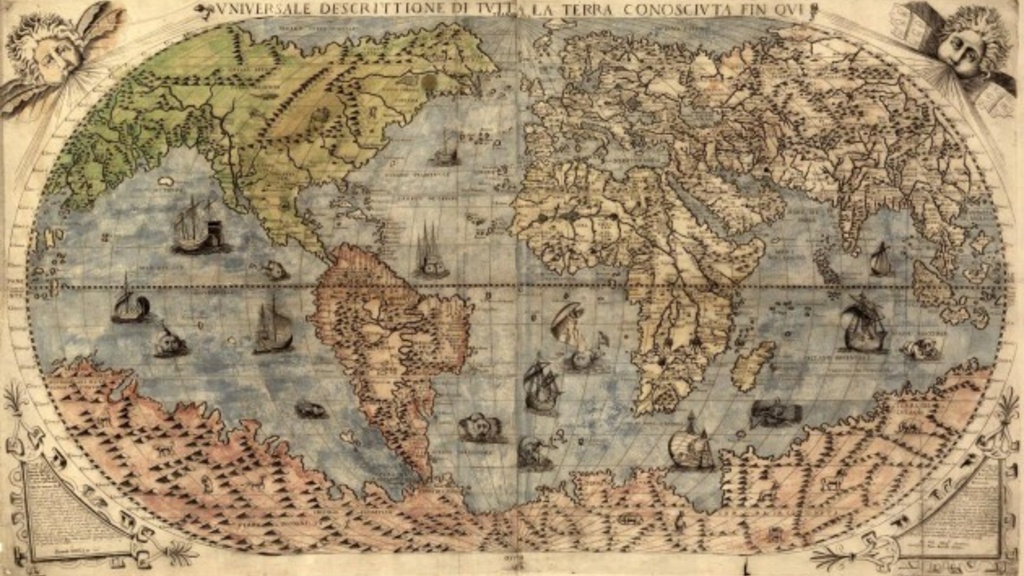
Circulating Cultures
The Circulating Cultures Working Group, now in its eighth year, brings together faculty from a range of disciplines: Anthropology, Arabic, Art & Art History, English, Film Studies, French & Francophone Studies, German, History, Spanish and Portuguese, and Swahili. Group members share a common interest in the circulation of cultures in print, digital, oral, and audiovisual forms, especially as print crosses borders to create transnational disruptions and connections. Topics for individual projects along with collective readings have included the circulation of architectural forms, photography, and film; theories of material culture, literature and deep time, Creolization and hybridity, capitalism and modernity; and responses to environmental crises.
If you would like to learn more about this working group, please contact its co-directors, Elke Heckner (elke-heckner@uiowa.edu) and Julie Hochstrasser (julie-hochstrasser@uiowa.edu).
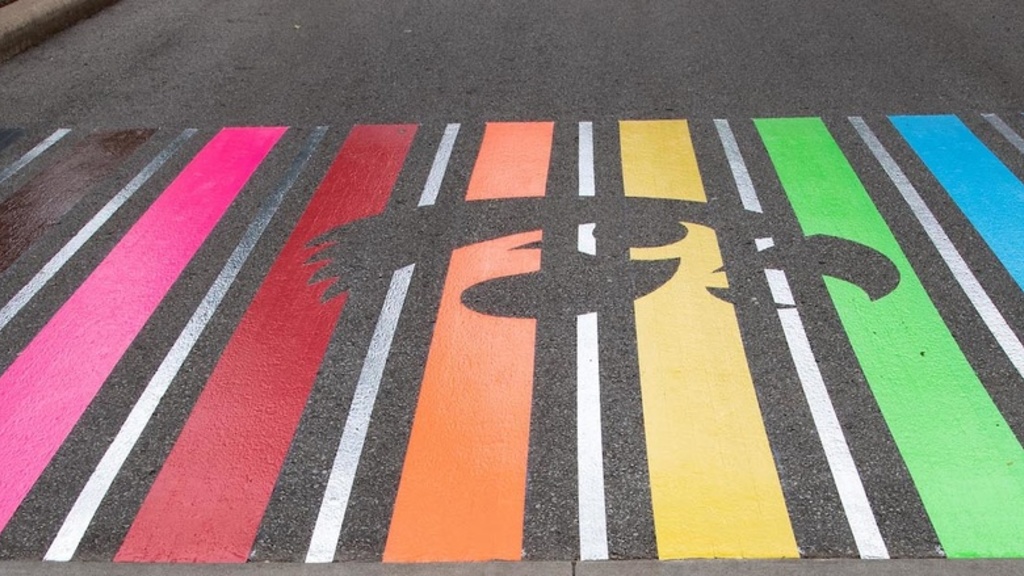
Facilitating Transformation
The Facilitating Transformation Working Group will function as a Community of Practice for trainers and facilitators across the University of Iowa campus and the local community. Members will meet regularly to discuss new research and best practices related to diversity and social justice-themed educational training programs. The goal will be to develop programs and/or enhance current practices that are most likely to lead to sustainable, transformative change. Members will discuss new modes, models, and practices for facilitation and program design, as well as workshop new ideas and collectively problem-solve common training gaps or pitfalls.
To learn more about this working group, please contact its co-directors, Bria Marcelo (brianna-marcelo@uiowa.edu) and David Supp-Montgomerie (david-supp-montgomerie@uiowa.edu).
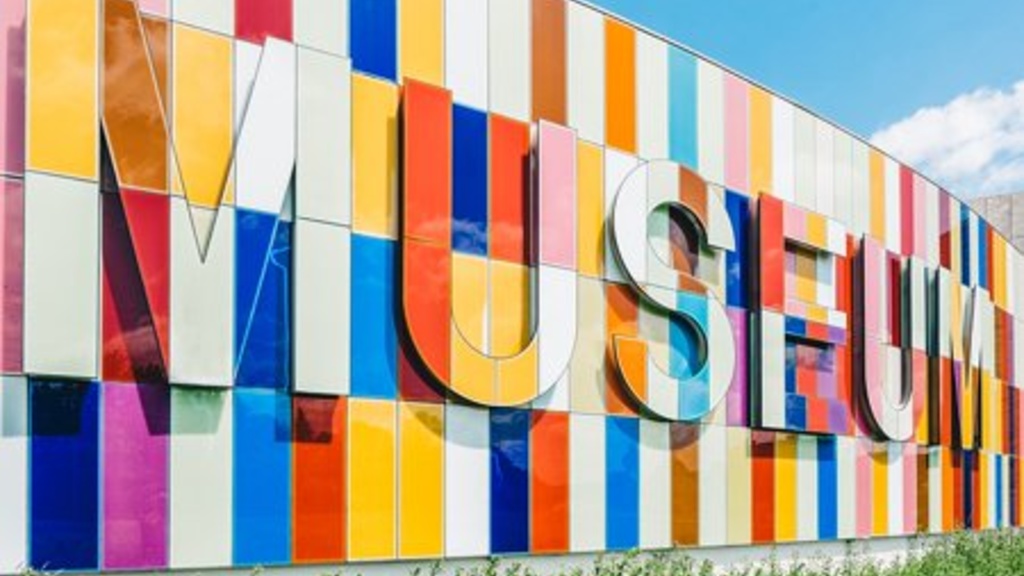
Museum Futures
The Museum Futures working group aims to take up conversations about museums’ colonialist origins and legacies, the exhibition and/or repatriation of objects taken from colonized people, and museums’ and communities’ efforts to increase public access to and engagement with collections. The larger aim of the working group is to garner interest in examining the ways museums have functioned in the past and to examine the ways they are and will continue to transform. The group will explore historical topics as well as those germane to current museum practice through shared readings, vibrant conversation, and presentations of works in progress.
To learn more about this working group, please contact its co-directors, Jen Buckley (jennifer-buckley@uiowa.edu), Joyce Tsai (joyce-tsai@uiowa.edu), and Anny Curtius (anny-curtius@uiowa.edu).
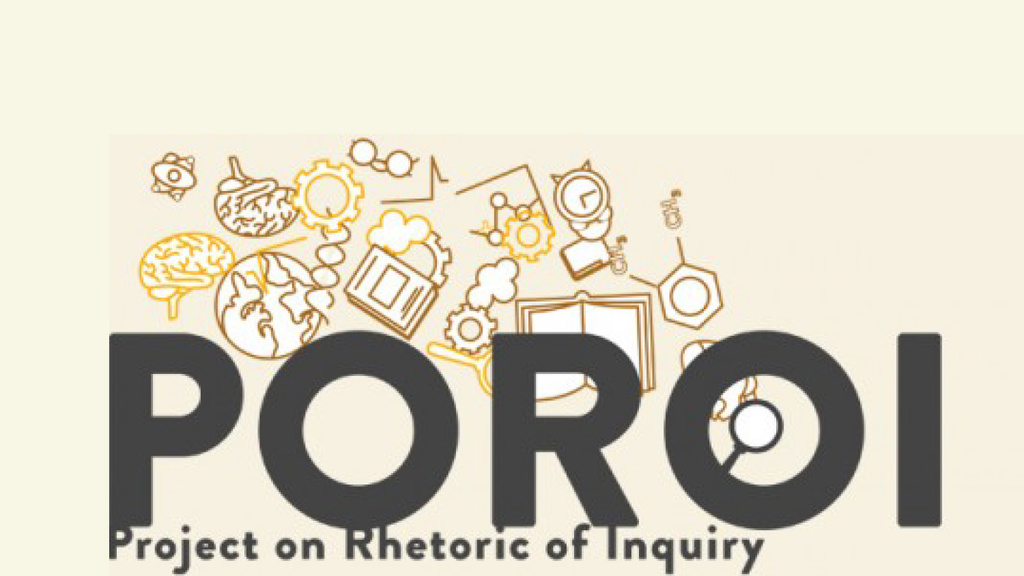
The Project on Rhetoric of Inquiry (POROI)
The Project on Rhetoric of Inquiry (POROI) is an interdisciplinary institute for research and public engagement housed at the Obermann Center at the University of Iowa. Its mission is to explore how scholarship and professional discourses are conducted through argument, how paradigms of knowledge are sensitive to social-political contexts, and how the presentation of scholarly and professional findings involves the recognition and negotiation of audiences.
Since its founding in 1980, POROI has provided resources for strengthening academic inquiry, creativity, and communication in the arts, humanities, sciences and professions. It is especially interested in communicative opportunities and problems that arise at the intersections between disciplines as well as between academia and diverse publics. In these respects, POROI applies the art of rhetoric to the conduct of inquiry. Its concerns range from the invention and construction of arguments to a marked interest in how discourse is interpreted, received, and disseminated in both technical and public spheres of argumentation. POROI is a constituent participant in Iowa’s Writing University Initiative.
To learn more about this group, please contact its director, Naomi Greyser (naomi-greyser@uiowa.edu).
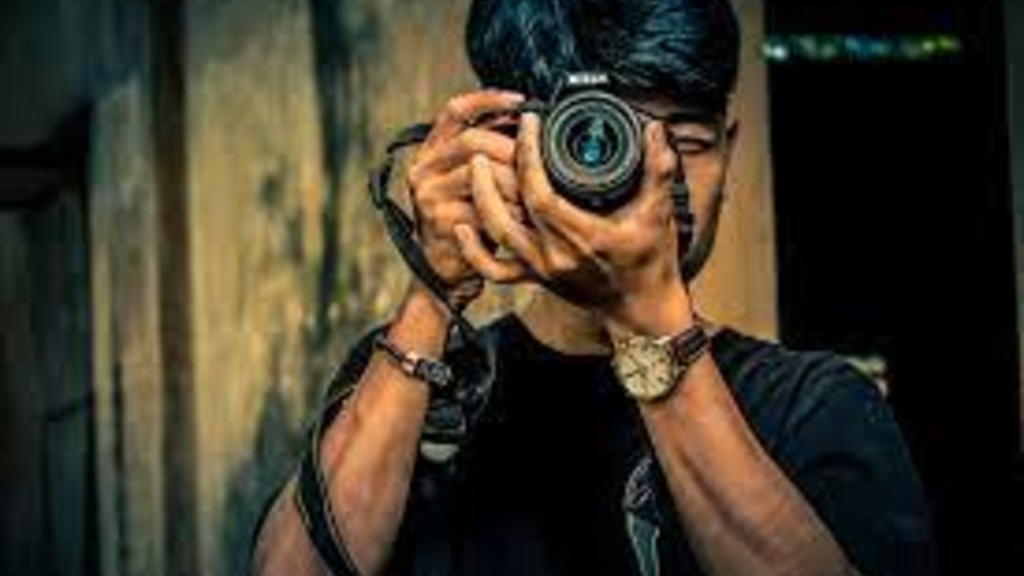
Social Intervention & Photography
The Social Intervention & Photography working group will explore photographic theory and praxis as tools for intervening in past and ongoing social issues, broadly construed. To start, the group will develop its own working definition of social intervention as it applies to photography. We will generate and investigate a range of related questions, for example: How can photography influence trajectories of collective storytelling today? How can photographic approaches reveal and challenge impositions such as racialization and sexualization? What formal techniques and conceptual frameworks can we deploy to deconstruct as well as decolonize traditional modes of photography (especially portraiture)? In responding creatively to these discussions, we will consider a variety of photographic approaches that our diverse members bring to the table: the manipulation of existing images, camera-less photography, photographic documentation of interventions in other mediums (for example, performance). We will document, organize, and refine our group’s conceptual and creative output with the objective of developing a digital publication or website that allows the work to be a lasting, free, accessible resource for and demonstration of Social Intervention and Photography.
To learn more about this working group, please contact its co-directors, Rachel Cox (rachel-cox-1@uiowa.edu) and Hao Zhou (hao-zhou-1@uiowa.edu).

Translation in the Humanities
Across the humanities, translation has always been either an object or a mode of inquiry. Many U.S. scholars who work with non-English sources often incorporate passages they translate into their published work, and of course continuously do their own translations for their research and teaching. Scholars who do translation come from a wide range of disciplines, such as Classics, Philosophy, Religious Studies, History, English, Art History, various area studies, and of course, Literary Translation. However, most such scholars have little or no training in translation studies and often do their translations in a somewhat unreflective way. The purpose of this working group is to cultivate a learned and thoughtful community of scholars who do translation at the University of Iowa and that supports both the professional development of each faculty member as well as translation as an interdisciplinary field of practice and study.
To learn more about this group, please contact its co-directors, Aron Aji (aron-aji@uiowa.edu) and Morten Schlütter (morten-schlutter@uiowa.edu).
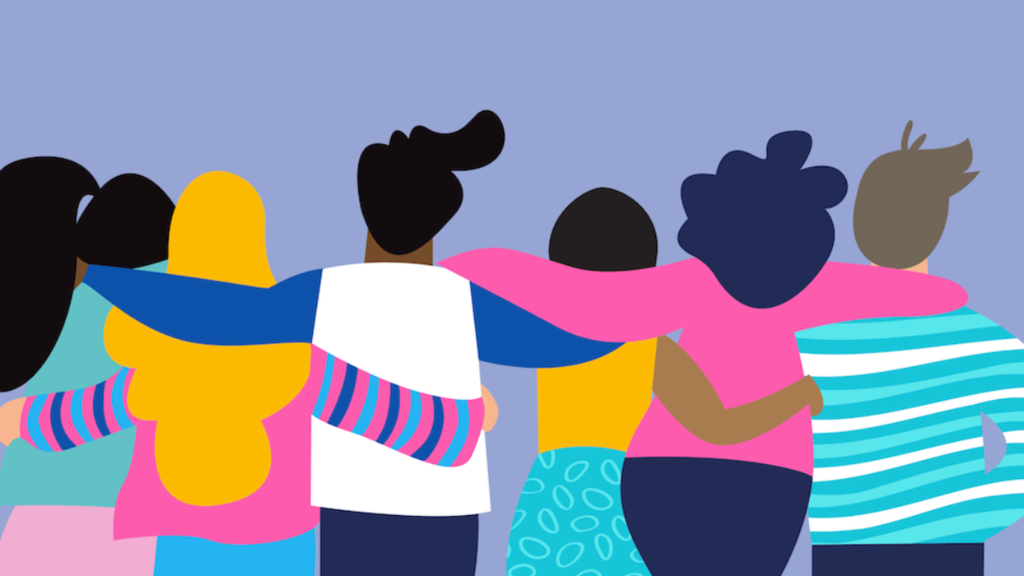
Antiracist Education: Changing Practices, Curriculum, & Policies
This working group will bring together educators from across content areas in K-12 public school and higher education, including teachers, administrators, researchers, teacher educators, and graduate students, to confront the realities of inherent racism in education at both the macro and micro levels. Our goals as a working group will be to develop and enact practices and policies that center and uplift the voices of our Black, Indigenous, and Students of Color. Being antiracist educators requires us to work as a collective in order to unlearn systems that have normalized the dominant groups’ ways of learning and teaching. Our aim will be to craft new educational pathways with antiracism at its foundation in this particular geographic region of the Midwest. In this specific region, we believe that racism exists in a unique disguise of “niceness.”
To learn more about this working group, please contact its co-directors, Raquel Wood (raquel-wood@uiowa.edu) and Saba Khan Vlach (saba-vlach@uiowa.edu).
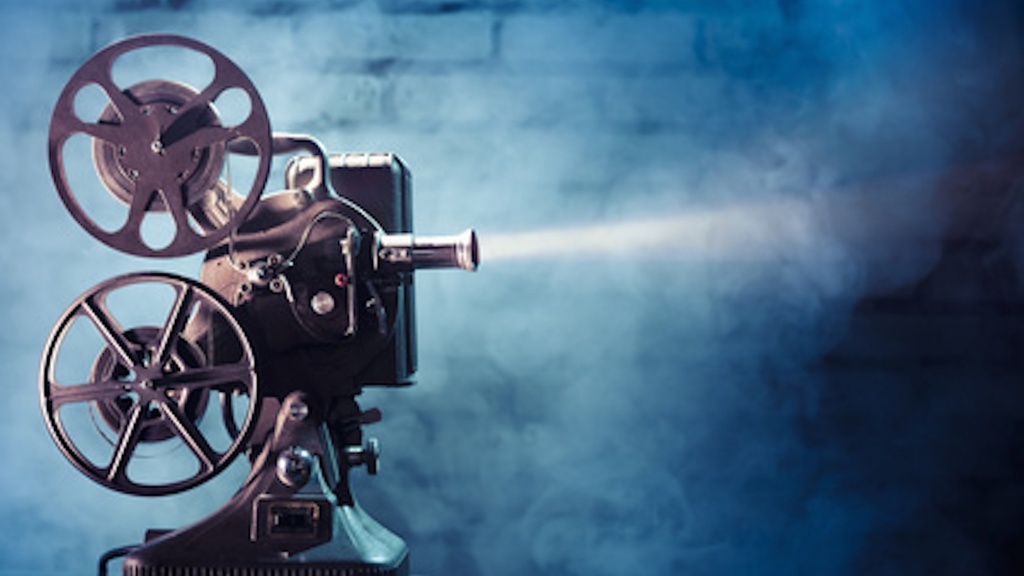
Contemporary Literary & Film Theory
The Contemporary Literary and Film Theory Working Group explores the ways in which debates in contemporary literary theory and film theory do and do not overlap. While the disciplines of literary studies and film studies have developed in parallel since the 1970s, the theoretical debates in each discipline have a more varied trajectory. For example, the disciplines have considered the relation between print and audiovisual culture and processes globalization from quite different perspectives, even though the concept of transnationalism has been a key term in both disciplines for at least decade. Likewise, both disciplines have reevaluated the relation between ethics, politics, and the arts, but have come to different conclusions regarding central aspects of the relation (including matters of subalternity and counter-hegemony). Finally, matters of digital or new media have prompted both disciplines to reconsider previous theoretical work on narrative and discourse.
To learn more about this working group, please contact its director, Kathleen Newman (kathleen-newman@uiowa.edu).

Global Media Studies
The Global Media Studies Working Group brings together scholars from the social sciences and humanities to explore enduring and emerging issues in global media research. This working group is the starting point for a collaborate research group dedicated to issues in global media studies research. The end goal of the working group is to establish a sustainable “global media” research group that will conduct large-scale collaborate projects, including comparative research (exploring research questions in various countries or regions) and research that relies on mixed methodologies and new data collection techniques.
To learn more about this working group, please contact its director, Melissa Tully (melissa-tully@uiowa.edu).
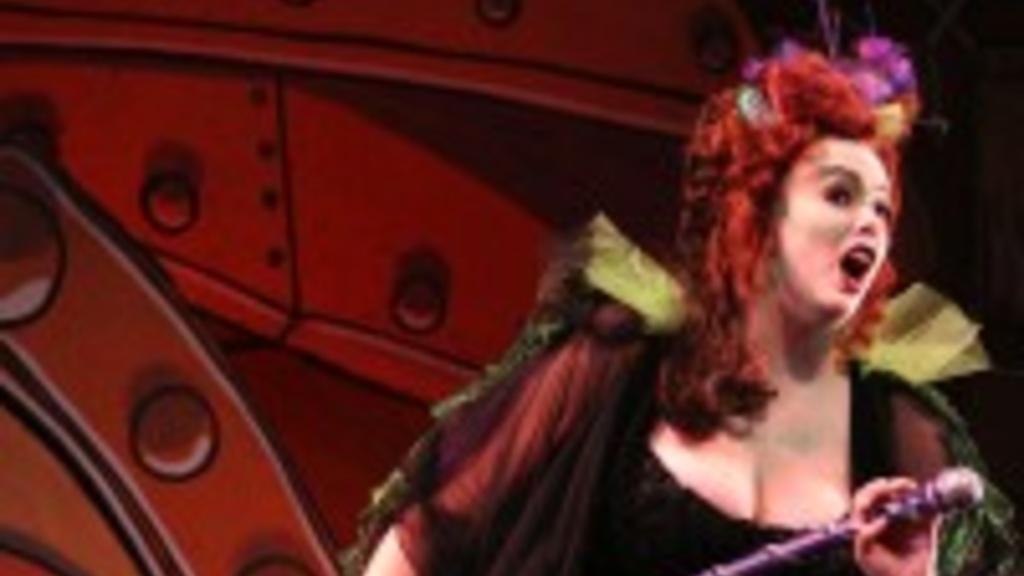
Opera Studies
The Opera Studies Working Group offers a variety of lectures and activities that are free and open to all members of the University and beyond. Please explore the group's website to learn about the group's purpose and history, view archived events, and see what other resources are available with regard to opera.
To learn more about this group, please contact its director, Nathan Platte (nathan-platte@uiowa.edu).
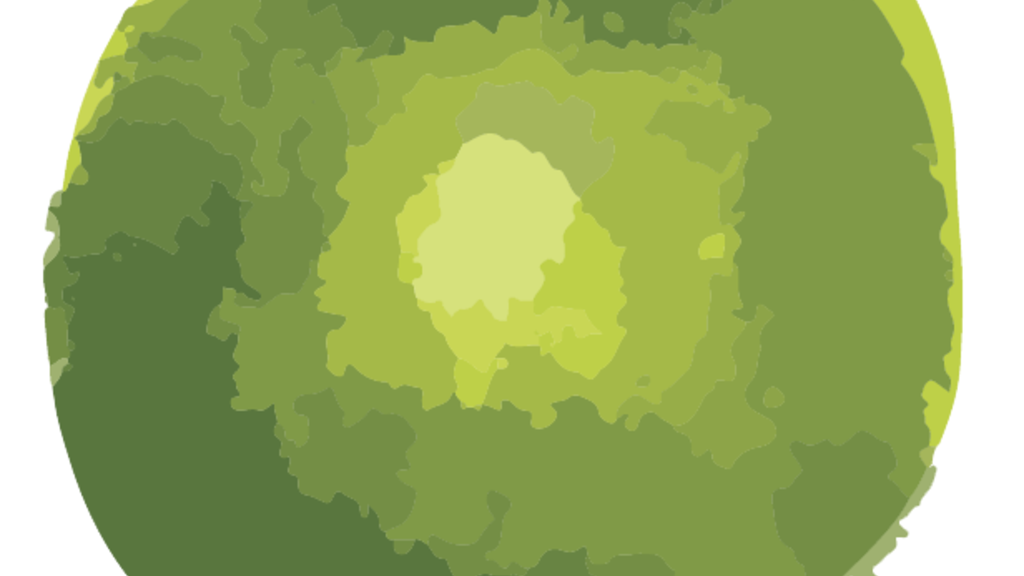
Redesigning Graduate Student Support
Inspired by shared experiences in 2019–2021 Humanities for the Public Good working groups, this group hosts ongoing conversations about issues of equity and wellness in graduate student education. We consider questions about mentoring, assessment, the hidden curriculum, gatekeeping, community, and learning in many senses of the word. In addition to faculty and peer mentors for grad students, we are also dedicated to celebrating, crediting, and reimagining the role of staff in supporting graduate students. We recognize the many forms of teaching occurring outside the traditional classroom and seek to uplift voices, experiences, and community partners not usually included in graduate education. We meet three times per semester during the academic year, a mix of virtual and in-person meetings.
To learn more about this working group or to join the next meeting, please contact its director, Laura Perry (laura-r-perry@uiowa.edu).
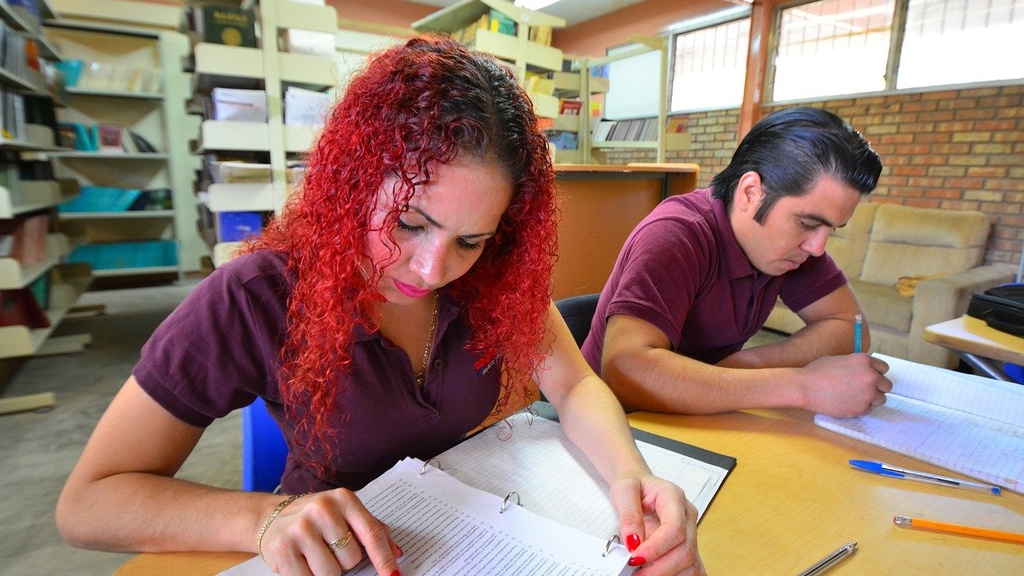
Spanish Heritage Speakers in the Classroom
The goal of this working group is to bring together scholars, graduate students, and instructors interested in discussing the particular contextual factors that affect Heritage Language speakers at the University of Iowa (those who grew up speaking Spanish at home or in communities where Spanish is a minority language) and in the broader context of the state of Iowa. Specifically, to frame our goals, we will use the approach of Critical Language Awareness, which emphasizes how oppressed groups can critically evaluate their surroundings and seek change through empowering, critiquing and questioning. At the end of our Working Group period, we will have a clearly articulated set of objectives for the University of Iowa Spanish Heritage Language Program. We will establish a set of curricular goals that will serve the needs of Heritage Language students and include Critical Language Awareness as a cornerstone.
To learn more about this working group, please contact its co-directors, Christine Shea (christine-shea@uiowa.edu) and Becky Gonzalez (rebecca-gonzalez-1@uiowa.edu).

Undergraduate Pedagogy
Many academic disciplines (e.g., English, art, music, dance, and film) confront the challenge of how to create an undergraduate pedagogy that bridges the arts and the humanities. Indeed, some of these disciplines have long and valuable experience negotiating this divide. Drawing on a broad range of pedagogy theory, arts education writing, and public humanities discourse, this working group will seek to craft a new vision of craft and critique that might prove beneficial to a range of disciplines.
To learn more about this working group, please contact its director, Harry Stecopoulos (harilaos-stecopoulos@uiowa.edu).
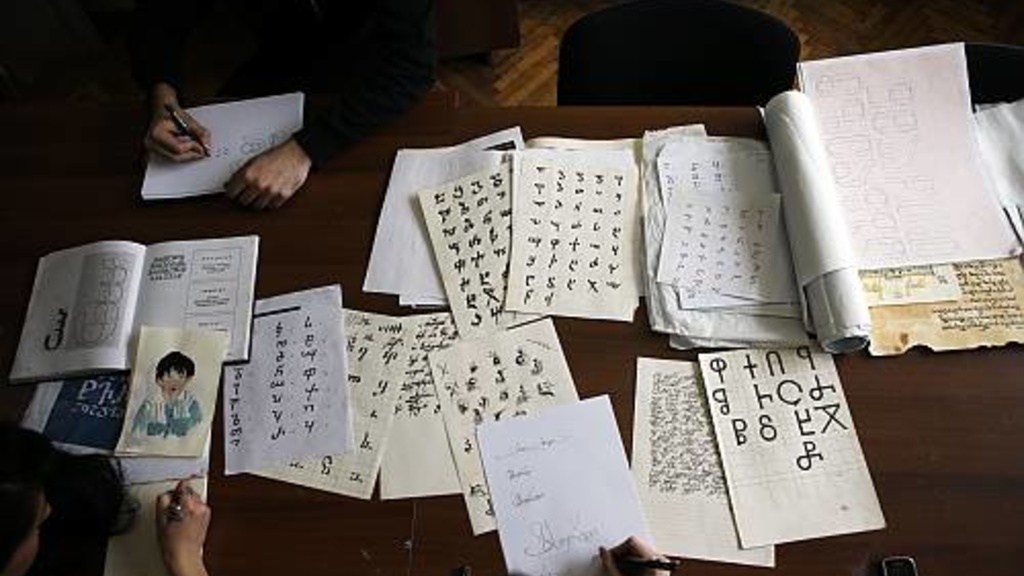
The Cassandra Project: Critical Approaches to the Study of Scripting & Reading Apparatuses
The goal of this working group is to initiate a broadly interdisciplinary, campus-wide conversation about the histories, multifarious forms, complex dynamics, and social impacts of writing systems in the broadest sense. The group's inquiry focuses on cultural technologies of notation—from the various ways of writing different languages (logographic, alphabetic, etc.), music and math notation, semasiography, khipus, pictographs, all the way to computer programming and AI. Members will be comparing diverse types of notations and ask how they differ functionally from each other.
To learn more about this working group, please contact its director, Sabine Gölz, at sabine-golz@uiowa.edu.
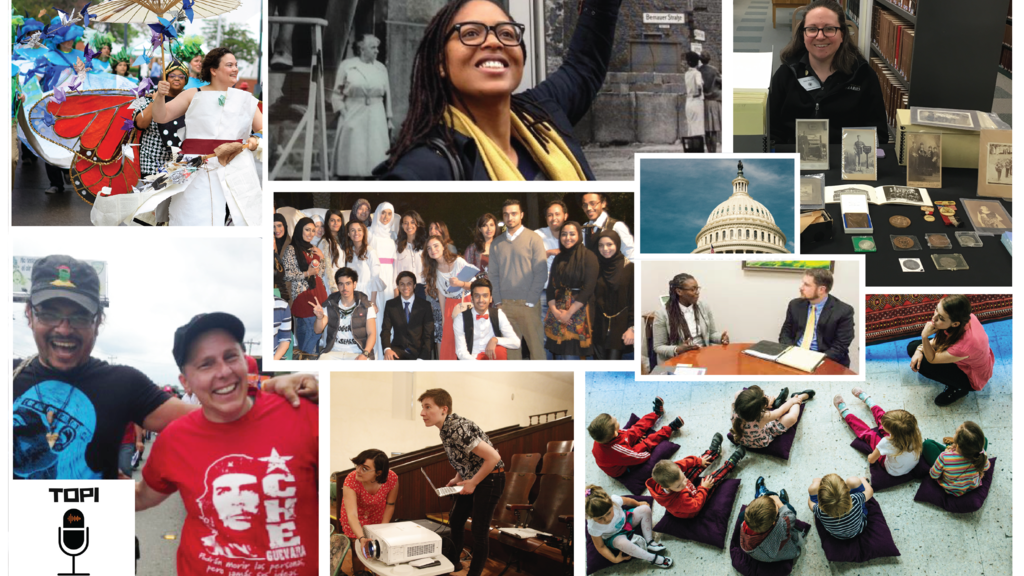
Cross-disciplinary, Engaged, Collaborative Graduate Education—A Learning Community
How can cross-disciplinary, project-based courses serve graduate students across the University? This question is under investigation at the University of Iowa by both the Andrew W. Mellon-funded Humanities for the Public Good PHD initiative and the National Science Foundation NRT-Funded Sustainable Water Development Graduate Program as well as implicitly in interdisciplinary degrees in many corners of the University. We welcome faculty, graduate students, and academic staff actively involved in graduate education to explore opportunities for cross-disciplinary teaching and learning at the graduate level.
The learning community will focus on three topics:
—What local and global issues would benefit from multi-disciplinary opportunities for graduate students to learn together?
—How could courses and experiential learning opportunities clarify the values and skills needed for cross-disciplinary collaboration such as leadership, role flexibility, facilitation, project and time management, humility, deep listening, moving creatively from mistakes, ongoing self-examination and collective assessment, and the crucial importance of equity and justice to meaningful outcomes?
—How can the UI create intellectual space to imagine, design, and create cross-disciplinary, team-taught workshops and courses that could serve existing interdisciplinary programs, inspire new collaborations, and complement disciplinary graduate programs?
To learn more about this working group, please contact its co-directors, Dave Cwiertny (david-cwiertny@uiowa.edu) and Teresa Mangum (teresa-mangum@uiowa.edu).

Jewish Studies
This working group will create a community among faculty, staff, advanced graduate students, and community partners with a shared interest in Jewish Studies, sharing research, strategizing about teaching, and engaging the larger community. We do not approach our discussions with a fixed aim, such as creating a Jewish Studies Program or editing a collection of essays. Rather, we see it as our task to explore opportunities for developing the field at Iowa, taking into account faculty, student, staff, and community interest as well as institutional factors. One of our tasks will be simply to explore the questions: “What is Jewish Studies? What do we want it to be?”
To learn more about this working group, please contact its co-directors, Ari Ariel (ari-ariel@uiowa.edu) and Lisa Heineman (elizabeth-heineman@uiowa.edu).
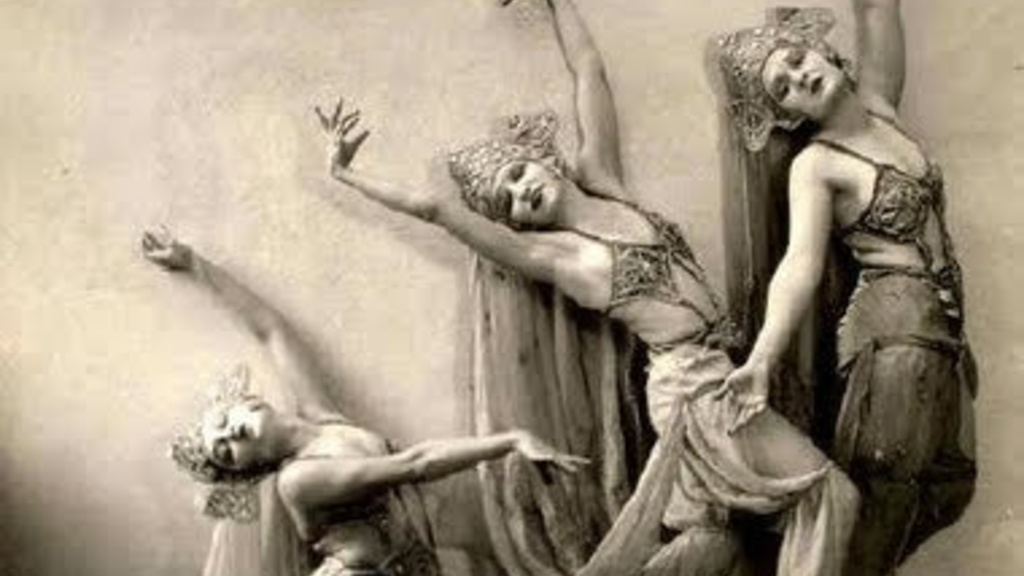
Performance Studies
This working group brings together scholars and artists working in, around, and between all of the fields with which performance studies engages. The group's objective is to provide a monthly forum in which members present, read, watch, listen to, and discuss new scholarly, creative, and cultural work that not only encompasses the entire expanse of performance studies, but also pushes beyond the field’s current frontiers. This group is particularly interested in thinking through the ways in which disciplinary differences manifest in performance studies work.
To learn more about this group, please contact its co-directors, Kim Marra (kim-marra@uiowa.edu) and Jen Buckley (jennifer-buckley@uiowa.edu).
Reproductive Justice
This working group brings together faculty, graduate students, and community activists with diverse interdisciplinary backgrounds to explore urgent matters that center on motherhood and the struggle for reproductive justice. Drawing on anthropology, history, sociology, communication, and critical cultural studies, our goal is to craft a rigorous space of inquiry that can begin to untangle the stakes and challenges (perhaps even potential paths forward) for a complex set of issues that bears meaningfully and immediately on the lives of women and girls in particular and increasingly in the lives of trans and gender non-conforming people. Shared readings will inform an ongoing and nuanced conversation about reproductive politics in local, regional, national, and transnational contexts. Topics include racism and reproductive injustice, teen motherhood and stigma, public policy and legislative initiatives, histories/meanings of motherhood, movements for reproductive health, queer family formation, and how these intersect with immigration, environmental devastation, the rise of white nationalism and white supremacy, and the carceral state.
To learn more about this group, please contact its co-directors, Natalie Fixmer-Oraiz (natalie-fixmer-oraiz@uiowa.edu) and Lina-Maria Murillo (lina-murillo@uiowa.edu).
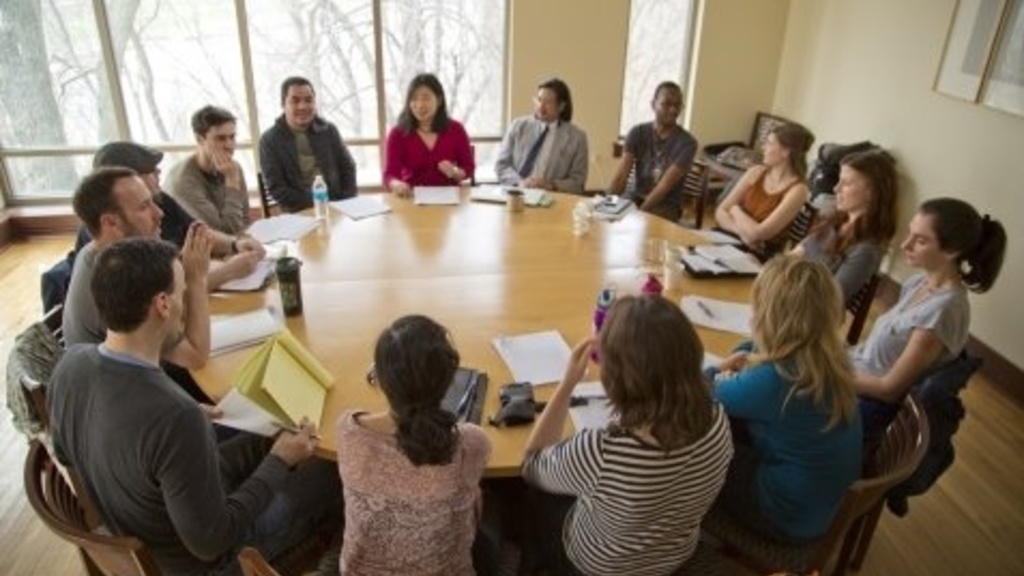
Teaching with Writing
Formerly the Writing University Working Group, the Teaching with Writing Working Group provides a space for faculty and staff to come together to talk and learn about teaching with writing in the disciplines through reading and research and by consulting with Writing across the Curriculum (WAC) experts from other universities. As an “action research” group, we also plan and implement programming: formal and informal talks with instructors in different Iowa departments; a second Institute for Teaching with Writing before classes start in Fall 2021; and a possible intensive Teaching with Writing pilot in selected CLAS departments. Because our goals are now closely focused on academic-writing infusion in different disciplines, the group is now composed of a diverse range of instructors and staff from departments and colleges across the UI campus.
To learn more about this working group, please contact its co-directors, Carol Severino (carol-severino@uiowa.edu) and Deirdre Egan (deirdre-egan@uiowa.edu).
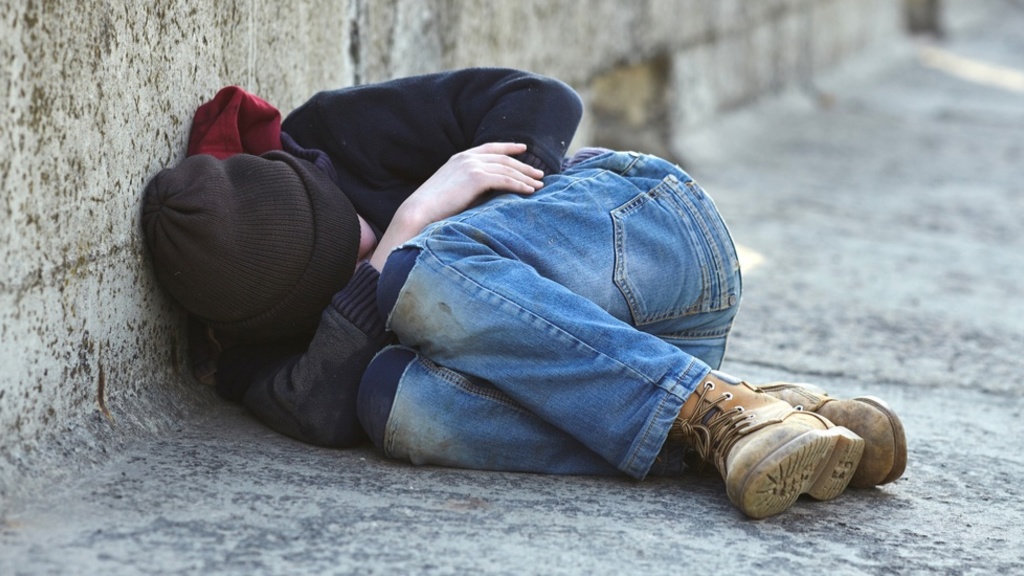
University-Community Partnership: Leveraging Expertise & Resources to Improve Mental Health Access for the Homeless
The ultimate goal of this workgroup is to pilot an in-house mental health program to serve the homeless population, including children and families. The clinic offers exciting opportunities for university and community collaboration. Students would be supervised by qualified supervisors, and the clinic would be staffed by graduate students enrolled in counseling training programs in the RCE department of the UI College of Education. The collaboration would meet a tremendous need for increased and timely access to mental health services for homeless individuals while also providing crucial insight into the experience of homelessness in local communities.
This group is funded by the Spelman-Rockefeller grant program.
To learn more about this group, please contact its director, Erin Barnes (erin-barnes@uiowa.edu).